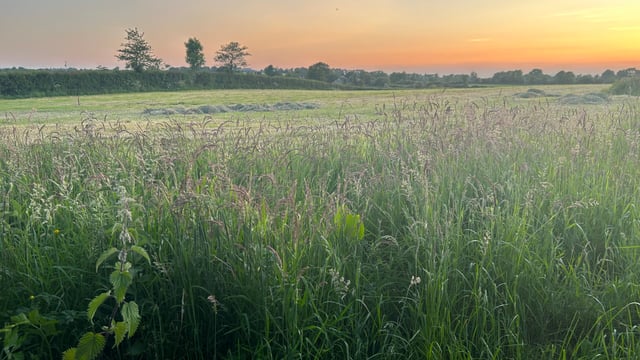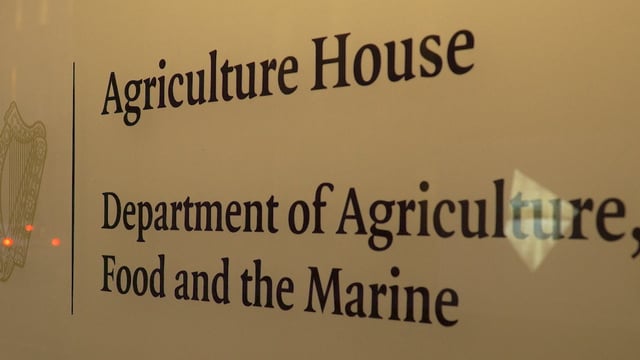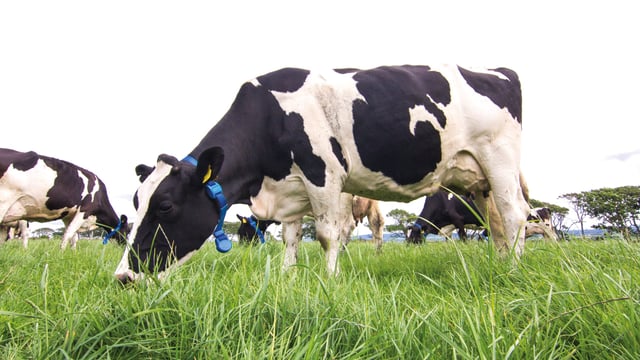Role of women in Irish agriculture celebrated at Dublin event
The role women have played in Irish agriculture in the past, present and what they can do in the future was celebrated today (Tuesday, March 4) at an event held in the European Commission Representation headquarters in Dublin.
The event, entitled 'Women Step into Farming', organised in collaboration with the Department of Agriculture, Food and the Marine, was to mark International Women’s Day 2025 and was chaired by Agriland editor, Stella Meehan.
Women from across the industry took part in the event, which shone a spotlight on the industry's current "heroines" who are paving the way for their colleagues, while highlighting some of the barriers preventing gender balance within the sector.
The event featured a discussion panel which included:
- Brookfield Farm manager and Accelerating the Creation Of Rural Nascent Start-ups (ACORNS) community member, Ailbhe Gerrard;
- Head of Education Programme, TEAGASC, Dr Anne-Marie Butler;
- Farmer and columnist, Irish Farmers Journal, Karen McCabe;
- Lead Coordinator, EU Horizon Europe, Female Led Innovation in Agriculture and Rural Areas (FLIARA) project, Dr Maura Farrell.
Minister for Agriculture, Food and the Marine, Martin Heydon opened the event, sharing his own personal anecdote of being reared by his mother, who took over the family farm following the death of her husband in 1986, when he was just eight years of age.
Heydon also went on to highlight the government's commitment towards enhancing female representation in "a very male dominated industry", including the 'National Women in Agriculture Action', which aspires to promote female participation in agriculture from a policy level.
"The Program for Government recognises two things in this area. Firstly, the critical role that agriculture and food plays in Ireland's social society and economy and secondly the need to improve gender equality.
"The under-representation of women poses a challenge to achieving greater gender equality in a sector where female participation is vital to its future viability and sustainability.
"I am a firm believer in the need to increase the visibility, equality and the status of women in farming," he added.
The minister underlined that this is why he is "committed to implementing the National Women in Agriculture Action Plan to recognise the role of women in farming".
"There is now momentum for promoting women in agriculture, that maybe wasn't there as much in the past, that critically must be maintained and driven on," the minister added.
He went on to list other policies which serve to benefit female farmers, such as the Women Farmer Capital investment scheme under TAMS - which has observed a "significant" uptake in applications - providing grants of up to 60% towards capital investments.
This policy, according to the minister, was implemented not only encourage new female entrees into the industry, but to also recognise the many women who are already contributing to the sector in family farm enterprises.
Minister Heydon also pointed to the newly announced, European Innovation Project, 'Making Farms for Women', which the minister said, will receive €650,000 in funding over a period of three years towards the piloting of new on-farm initiatives designed to encourage greater gender balance.
During the panel discussion, Dr. Maura Farrell, presented her research which found that female farmers in Europe possess a greater commitment towards sustainability, across sectors, relative to their male counterparts.
Through survey analysis and interviews, Farrell discovered that female farmers were the "secret weapons" in terms of achieving a sustainable transition in agriculture as their "ethos around the environment was absolutely enormous".
Separately an organic farmer and Nuffield alumni from Tipperary, seconded this appraisal, sharing her own story of entering the industry as a newcomer, after purchasing a tillage farm, before converting it to an organic enterprise, with a number of diversifications added along the way.
Succession proved to be the salient topic of the day's debate, with all of the panelists advising that conversations around inheritance must be "normalised" to break away from tradition which favour the eldest boy in a family.
Education is another means of changing the industry's narrative to become more inclusive of women, Dr. Anne-Marie Butler stated and called for agriculture to be promoted as a viable career option at secondary school level by career guidance councillors.
"I suppose the good news first, when you look back over the numbers, since about 2012, the number of females that are graduating from our courses has gone from about 12% to 26%," Butler said.
From her experience speaking to students, females bring new insights into agriculture, that may be overlooked by their male peers, and are more inclined to question and challenge industry conventions.
According to farmer and columnist, Karen McCabe, social media has become a useful tool in promoting female visibility in the sector, which has in turn helped to inspire a new generation of female farmers who may have been empowered to join on account of the greater visibility media has aforded.
Farrell also referenced that policies must be evaluated to assess the extent of their impact on the sector to avoid the risk of "pinkwashing".
"We also need to make sure that the policies are not some form of pink washing.We don't want policies that are just a nod and a wink to the women in farming.
We want something that actually makes a difference," she said.






